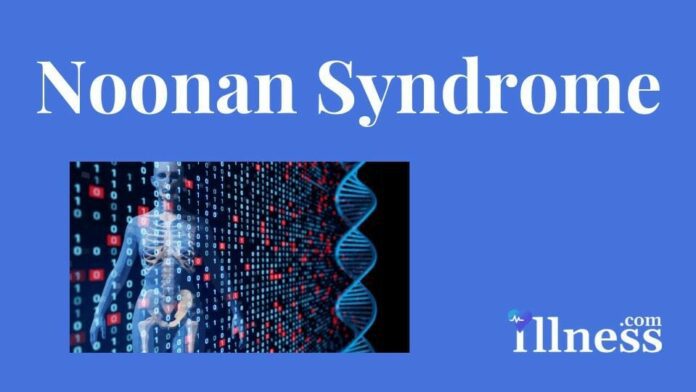Overview Of Noonan Syndrome
Noonan Syndrome is a disease present from birth (congenital) that causes many parts of the body to develop abnormally. In some cases, it is passed down through families (inherited).
Causes Of Noonan Syndrome
This condition is linked to defects in several genes. In general, certain proteins involved in growth and development become overactive as a result of these gene changes.
Noonan syndrome is an autosomal dominant condition. This means only one parent has to pass down the non-working gene for the child to have the syndrome. However, some cases may not be inherited.
Symptoms
Symptoms include:
- Delayed puberty
- Down-slanting or wide-set eyes
- Hearing loss (varies)
- Low-set or abnormally shaped ears
- Mild intellectual disability (only in about 25% of cases)
- Sagging eyelids (ptosis)
- Short stature
- Small penis
- Undescended testicles
- Unusual chest shape (most often a sunken chest called pectus excavatum)
- Webbed and short-appearing neck
Exams & Tests
The health care provider will perform a physical exam for signs of noonan syndrome. This may show heart problems the infant had from birth. These may include pulmonary stenosis and atrial septal defect.
Tests depend on the symptoms, but may include:
- Platelet count
- Blood clotting factor test
- ECG, chest x-ray, or echocardiogram
- Hearing tests
- Growth hormone levels
- Genetic testing can help diagnose this syndrome.
Treatment Of Noonan Syndrome
There is no specific treatment. Your provider will suggest treatment to relieve or manage symptoms. Growth hormone has been used successfully to treat short height in some people with this condition.



